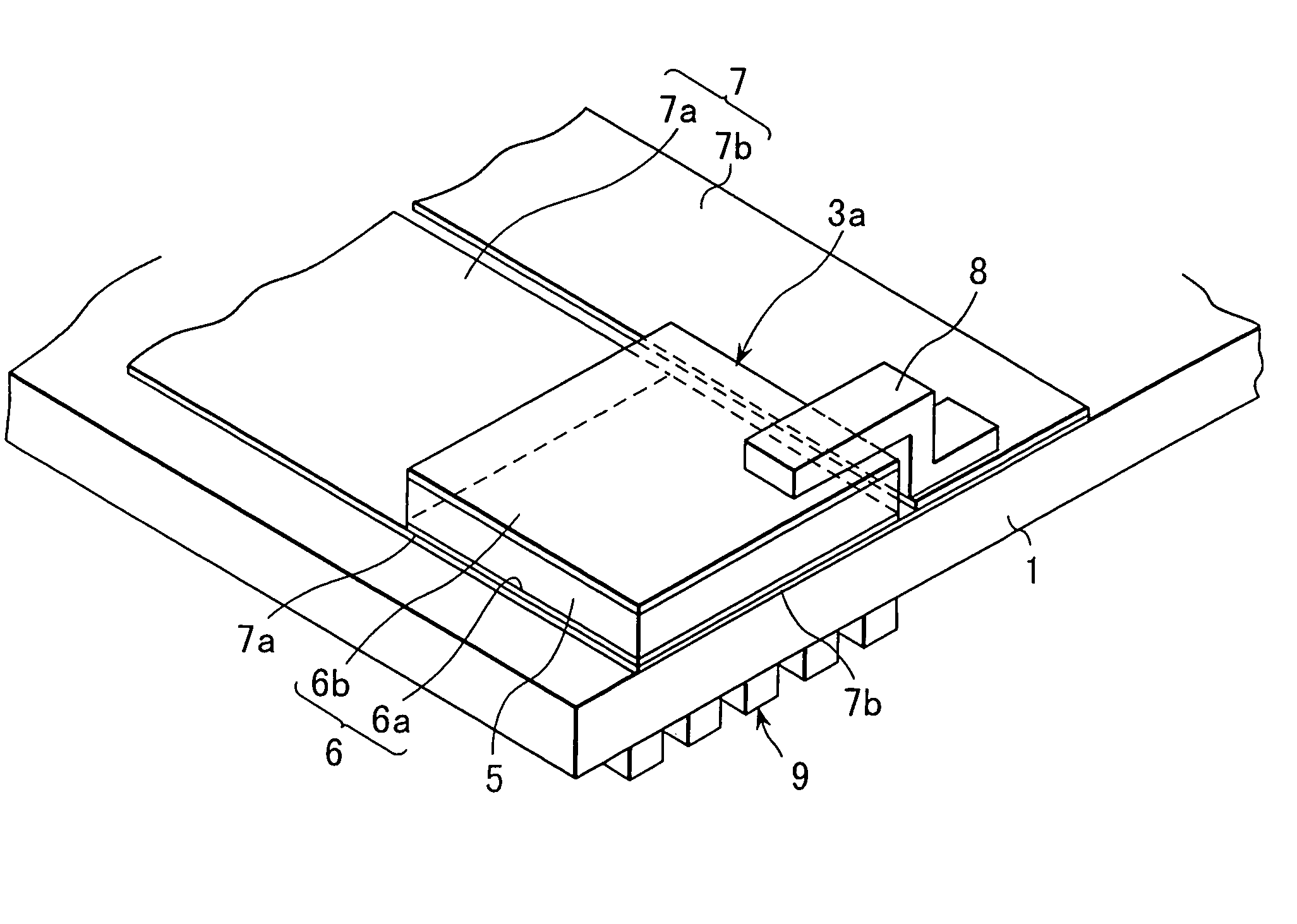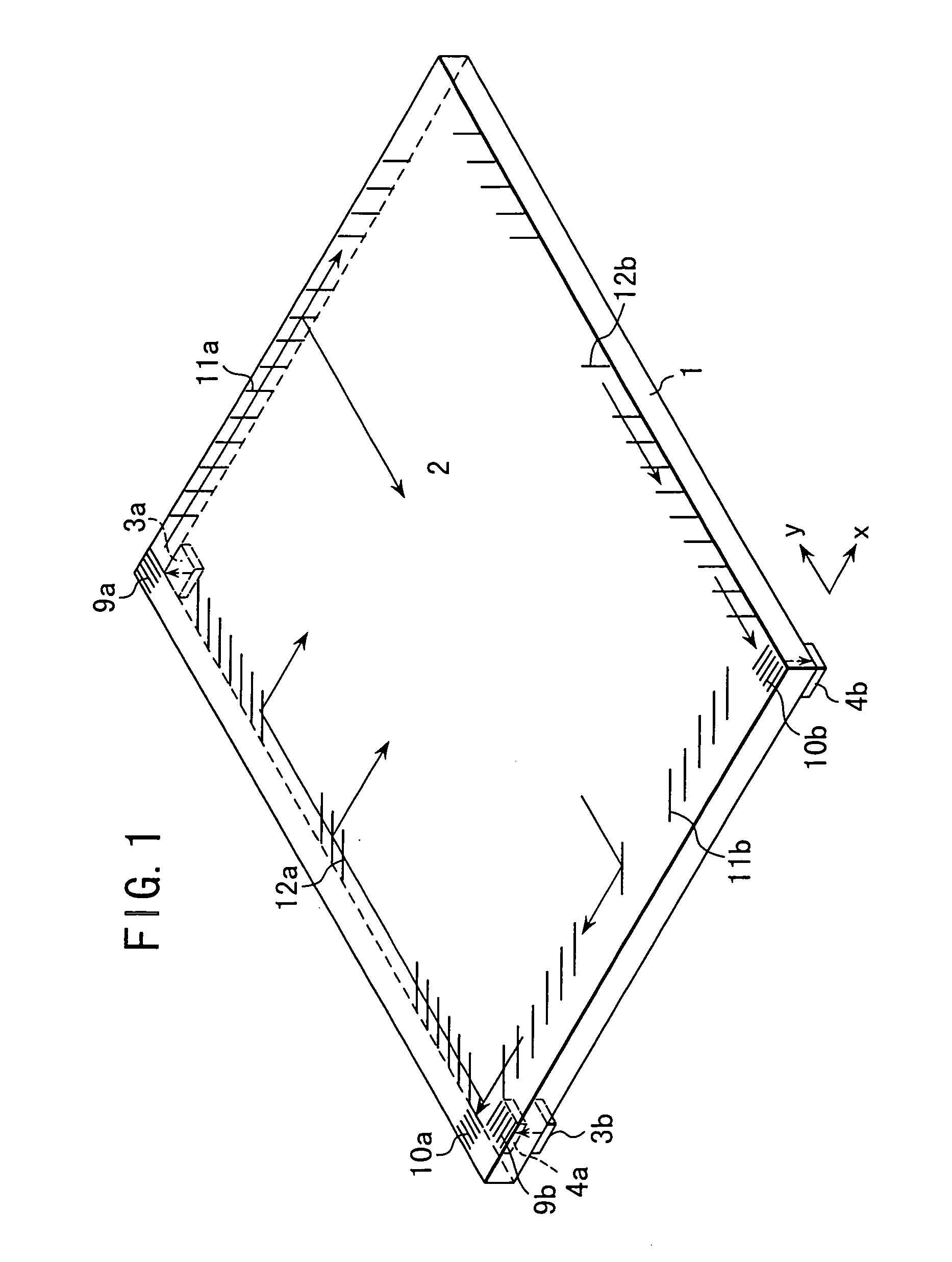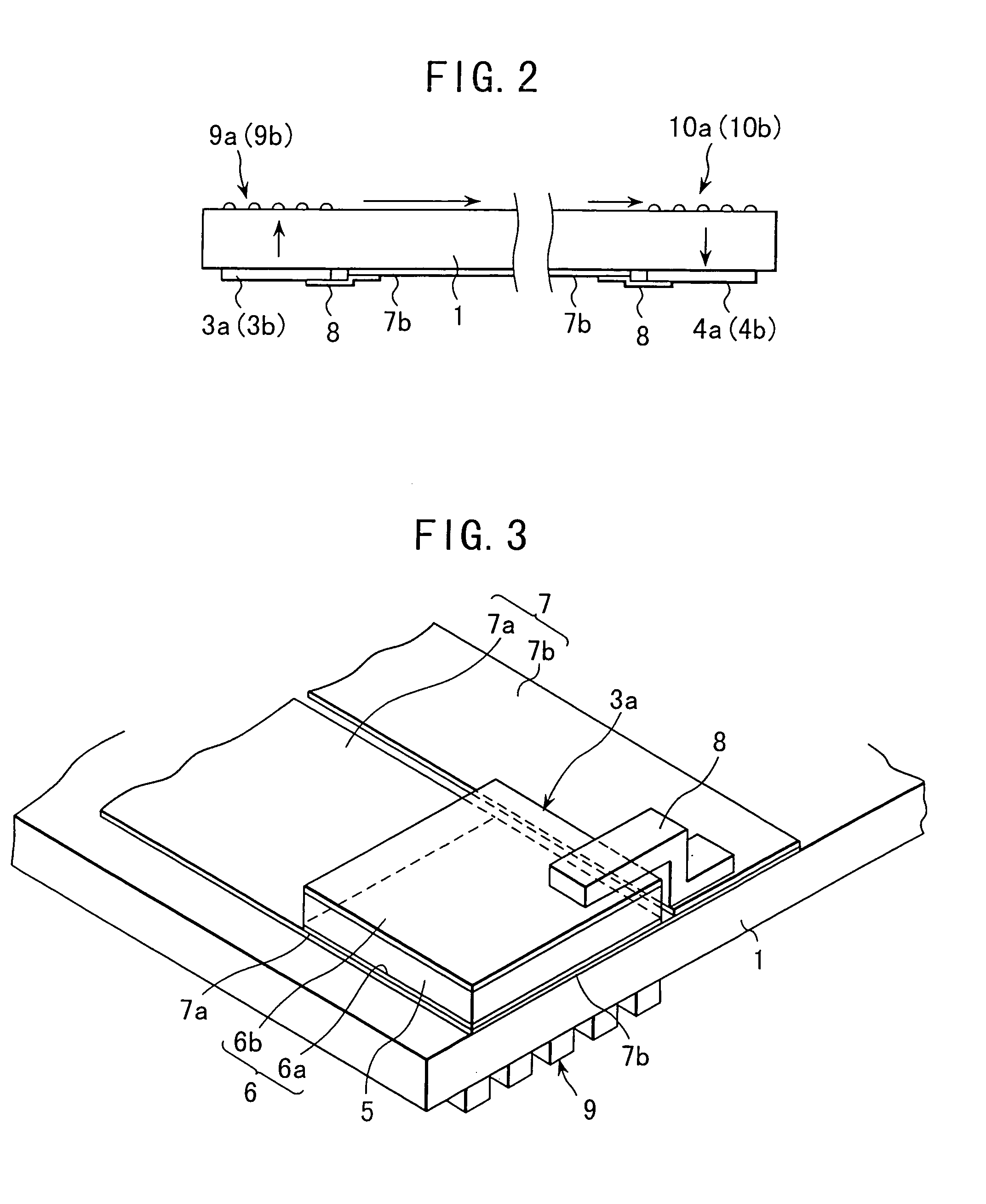Acoustic contact detecting device
a detection device and contact technology, applied in the field of acoustic contact detection devices, can solve the problems of unguarded piezoelectric transducers, inability to fully adapt the touch panel of ultrasonic methods to the flat panel, and no space available for wedge transducers, etc., to achieve the effect of inhibiting the increase of profil
- Summary
- Abstract
- Description
- Claims
- Application Information
AI Technical Summary
Benefits of technology
Problems solved by technology
Method used
Image
Examples
example 1
[0059]A pattern shown in FIG. 3 was printed on a back surface of a substrate made of soda-lime glass by the screen printing method with silver paste used as an ink. After the printing, the object was heated and thus dried in an oven at 120° C. for 10 minutes.
[0060]Subsequently, as shown in FIG. 1, an acoustic mode coupler (a grating transducer) and a reflective array were printed on a top surface of the substrate by the screen printing method with glass paste used as an ink and then dried.
[0061]Then, the printed pattern together with the glass substrate was baked at a baking temperature in a range of 485° C. to 490° C. with the top keeping period of 10 minutes, and thus the glass substrate with a planar wiring was obtained. It is to be noticed that the height of the grating of the grating transducer is 40 μm and the reflective array element is angled at 45° with respect to the X-axis and the Y-axis.
[0062]One end of copper plate (a connecting device having a bent shape) having a step...
example 2
[0063]A pattern shown in FIG. 3 was printed on a polypropylene film fixedly attached onto a substrate, by the screen printing method with silver paste used as an ink. After the printing, the object was heated and thus dried in an oven at 120° C. for 10 minutes.
[0064]Subsequently, as shown in FIG. 1, an acoustic mode coupler (a grating transducer) and a reflective array were printed on a top surface of the substrate by the screen printing method with glass paste used as an ink and then dried.
[0065]The polypropylene film was tightly contacted to a back surface of the glass substrate and a film having a predetermined pattern printed thereon was further loaded thereon, and then the printed pattern together with the glass substrate was baked at the baking temperature in a range of 485° C. to 490° C. with the top keeping period of 10 minutes, and thus the glass substrate with a planar wiring was obtained. After baking, it was observed that the wiring by way of the conductive paste was sec...
PUM
 Login to View More
Login to View More Abstract
Description
Claims
Application Information
 Login to View More
Login to View More - R&D
- Intellectual Property
- Life Sciences
- Materials
- Tech Scout
- Unparalleled Data Quality
- Higher Quality Content
- 60% Fewer Hallucinations
Browse by: Latest US Patents, China's latest patents, Technical Efficacy Thesaurus, Application Domain, Technology Topic, Popular Technical Reports.
© 2025 PatSnap. All rights reserved.Legal|Privacy policy|Modern Slavery Act Transparency Statement|Sitemap|About US| Contact US: help@patsnap.com



